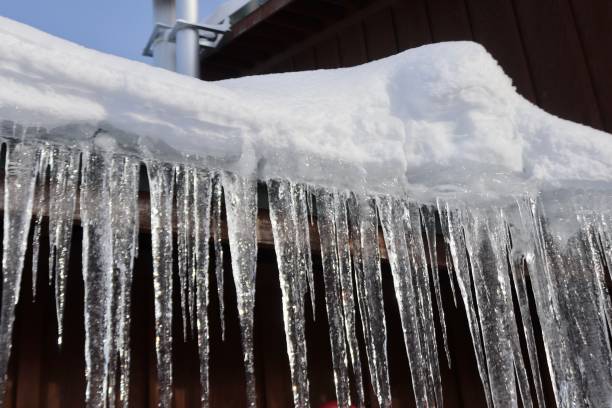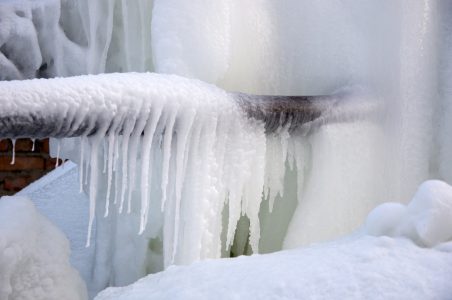Protecting Against Frozen Plumbing in Winter: Critical Advice
Protecting Against Frozen Plumbing in Winter: Critical Advice
Blog Article
In this article down the page you can locate a bunch of good insights in regards to Preventing and dealing with frozen pipes.

Winter can damage your plumbing, specifically by freezing pipelines. Right here's how to prevent it from occurring and what to do if it does.
Introduction
As temperatures decrease, the risk of icy pipes rises, possibly resulting in expensive repair work and water damage. Understanding just how to avoid frozen pipelines is critical for house owners in cold environments.
Comprehending Icy Pipes
What creates pipes to ice up?
Pipes ice up when subjected to temperature levels below 32 ° F (0 ° C) for expanded periods. As water inside the pipes ices up, it expands, putting pressure on the pipeline walls and potentially creating them to burst.
Risks and problems
Icy pipes can result in water disruptions, residential property damages, and pricey repairs. Burst pipes can flood homes and cause comprehensive architectural damages.
Indications of Frozen Water Lines
Recognizing icy pipelines early can avoid them from rupturing.
Exactly how to determine frozen pipes
Search for decreased water flow from taps, unusual smells or noises from pipes, and visible frost on subjected pipelines.
Prevention Tips
Insulating prone pipes
Wrap pipes in insulation sleeves or utilize warm tape to safeguard them from freezing temperatures. Concentrate on pipelines in unheated or exterior locations of the home.
Heating strategies
Maintain interior areas properly heated up, specifically areas with pipes. Open cupboard doors to permit warm air to flow around pipes under sinks.
Safeguarding Exterior Plumbing
Garden pipes and exterior faucets
Detach and drain pipes yard tubes before winter season. Set up frost-proof faucets or cover exterior taps with shielded caps.
What to Do If Your Pipelines Freeze
Immediate activities to take
If you suspect frozen pipes, maintain taps open to ease pressure as the ice melts. Use a hairdryer or towels soaked in warm water to thaw pipelines gradually.
Long-Term Solutions
Structural modifications
Consider rerouting pipes far from outside walls or unheated areas. Add additional insulation to attics, basements, and crawl spaces.
Upgrading insulation
Invest in top quality insulation for pipelines, attic rooms, and wall surfaces. Appropriate insulation helps maintain consistent temperatures and decreases the risk of frozen pipes.
Final thought
Stopping frozen pipelines needs positive actions and fast actions. By understanding the causes, signs, and preventive measures, property owners can secure their plumbing throughout winter.
Helpful Tips to Prevent Frozen Pipes this Winter
UNDERSTANDING THE BASICS: WHY PIPES FREEZE AND WHY IT’S A PROBLEM
Water freezing inside pipes is common during the winter months, but understanding why pipes freeze, and the potential problems it can cause is crucial in preventing such incidents. This section will delve into the basics of why pipes freeze and the associated problems that may arise.
THE SCIENCE BEHIND FROZEN PIPES
When water reaches freezing temperatures, it undergoes a physical transformation and solidifies into ice. This expansion of water as it freezes is the primary reason pipes can burst. As the water inside the pipe freezes, it expands, creating immense pressure on the walls. If the pressure becomes too great, the pipe can crack or rupture, leading to leaks and water damage.
FACTORS THAT CONTRIBUTE TO PIPE FREEZING
Low Temperatures: Extremely cold weather, especially below freezing, increases the risk of pipes freezing. Uninsulated or Poorly Insulated Pipes: Pipes located in unheated areas, such as basements, crawl spaces, or attics, are more prone to freezing. Insufficient insulation or lack of insulation altogether exacerbates the problem. Exterior Wall Exposure: Pipes running along exterior walls are susceptible to freezing as they encounter colder temperatures outside. Lack of Heating or Temperature Regulation: Inadequate heating or inconsistent temperature control in your home can contribute to frozen pipes. PROBLEMS CAUSED BY FROZEN PIPES
- Pipe Bursting: As mentioned earlier, the expansion of water as it freezes can cause pipes to burst, resulting in significant water damage.
- Water Damage: When pipes burst, it can lead to flooding and water damage to your property, including walls, ceilings, flooring, and personal belongings.
- Structural Damage: Prolonged exposure to water from burst pipes can compromise the structural integrity of your home, leading to costly repairs.
- Mold and Mildew Growth: Excess moisture from water damage can create a favorable environment for mold and mildew growth, posing health risks to occupants.
- Disrupted Water Supply: Frozen pipes can also result in a complete or partial loss of water supply until the issue is resolved.
WHY CERTAIN PIPES ARE MORE PRONE TO FREEZING
- Location: Pipes located in unheated or poorly insulated areas, such as basements, crawl spaces, attics, or exterior walls, are at higher risk of freezing.
- Exterior Pipes: Outdoor pipes, such as those used for irrigation or exposed plumbing, are particularly vulnerable to freezing as they are directly exposed to the elements.
- Supply Lines: Pipes that carry water from the main water supply into your home, including the main water line, are critical to protect as freezing in these lines can affect your entire plumbing system.
- Underground Pipes: Pipes buried underground, such as those connected to sprinkler systems or outdoor faucets, can be susceptible to freezing if not properly insulated.
https://busybusy.com/blog/helpful-tips-to-prevent-frozen-pipes-this-winter/

Do you really like more info about How To Avoid Freezing Pipes? Create a short review down the page. We will be delighted to see your feelings about this blog entry. We are looking forward that you come back again in the near future. Do you know another individual who is very much interested in the subject? Be sure share it. Many thanks for your time invested reading it.
Booking Page Report this page